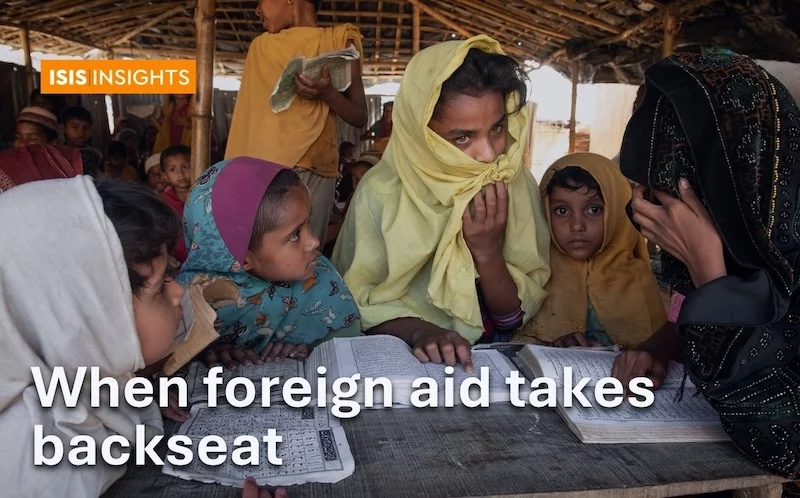Trump administration’s funding cuts open ways to others seeking to bolster ‘soft power’
US President Donald Trump’s approach to foreign aid prioritised domestic interests, framing it as “America First” economics – that taxpayer dollars should be spent at home rather than abroad.
This shifted focus from traditional humanitarian and development aid to programmes aligned with US foreign policy.
In Malaysia, funding cuts to the United States Agency for International Development (USAID), United Nations High Commissioner for Refugees (UNHCR) and World Health Organisation caused an immediate impact. Civil society organisations (CSOs) were forced to close refugees’ schools. The closure reflects the fault-lines in the international humanitarian funding mechanism.
Almost immediately, CSOs had to diversify their funding sources. Malaysia Consultative Council of Islamic Organisation (Mapim) president Mohd Azmi Abdul Hamid disclosed that affected CSOs sought help to connect with potential new sponsors.
“Mapim only received one-time funding from UNHCR in 2023 for Rohingya refugee schools,” he noted and was spared from the recent US funding cuts.
Mapim is “luckier” as its funding comes from different sources – including CSOs based in Qatar and Turkey and grants from embassies and high commissions.
International humanitarian organisations once aligned with US policy were most affected by funding freezes, disrupting community-led projects. An anonymous activist in Malaysia said CSOs reliant on the US, especially third-party funders, suffered most.
“We’re downsizing, cutting staff and scaling back refugee services,” she admits.
Reductions in funding for global programmes also undermined efforts to combat diseases, ensure food security, climate change and gender-based violence.
A UNHCR-registered Rohingya school principal in Malaysia said three schools have shut down. “The children now stay at home as other refugee schools are too far.” Her own school is resorting to selling food to keep its doors open.
But the crisis could also force local CSOs to innovate and develop their own resources and capabilities – a shift towards localised solutions as a short-term measure.
A pullback from states opens a gap in the funding system. According to 2023 OECD data, more than 95% of foreign aid still comes from governments. The US remains the single largest donor – 88% of countries receive American assistance – but the trajectory is unmistakable.
Washington has stepped back. That decision is not a blip and not just about Trump. It reflects a deeper shift in American priorities – one that will endure, no matter who occupies the White House. Others would do well to adjust accordingly.
The geopolitical mood today demands trade-offs. Aid or arms. UK Prime Minister Keir Starmer’s decision to cut Overseas Development Aid (ODA) from 0.5% to 0.3% of gross national income to fund defence is just one example. Unfortunate, perhaps. But it brings clarity – CSOs should now plan, recalibrate and look elsewhere.
Asia’s wealthier states – China through the Belt and Road and Japan via ODA – must step up. So, too, Gulf nations with regional ambitions. Some Europeans may step up, but no one should assume the gap will be filled fully. Malaysian CSOs and the region must adapt, as they recall their core mission – to save lives, not chase grants.
It is no longer credible to speak of a just international order while the major powers lose interest in sustaining it. National interests are elastic: they stretch or shrink depending on who’s in charge. Today, the elastic is snapping back. The age of expansive Western soft power is over – or at least in remission.
The real question now is not how to restore the past but how to respond to its passing. Soft power still matters – but if states won’t pay for it, others must step in.
Local philanthropy must step in. We must confront an uncomfortable truth: Southeast Asia has long relied on the West to fund programmes for the underprivileged. Yes, many local companies contribute through CSR – but the scale and speed of fallout from the withdrawal of USAID and other Western donors exposes the imbalance.
It’s time for local entrepreneurs and firms to do more. Support rooted in the region resonates more with local needs, is less exposed to shifting geopolitical winds and more sustainable. And when foreign aid is scaled back or redirected, it is these actors – not Washington, Brussels or Tokyo – who should step into the breach and keep essential services alive.





